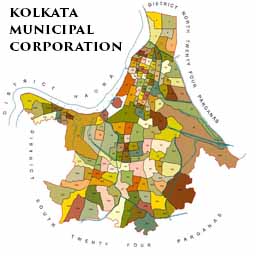Democracy poser to state govt & poll panel, Kolkata Civic body election, KMC Election 2015,Kolkata local body election
- Details
- Category: West Bengal Latest Election News and Updates
- Last Updated: Tuesday, 24 March 2015 12:01
KMC Election 2015: Democracy poser to state govt & poll panel

Calcutta, Calcutta High Court today posed several questions to the Mamata Banerjee government and the state election commission on civic elections.
The roles of both the commission and the government have been at the centre of a controversy for several months since retired WBCS officer S.R. Upadhyay succeeded former IAS officer Mira Pande at the helm of the poll panel.
In a marked shift in approach from the Pande tenure, the commission has been conciliatory in its dealings with the government on matters that she had found contentious enough to drag the government to court in 2013.
Latest List of candidates:
- Left Front candidate list for Kolkata Civic Polls
- Congress Candidate list for KMC elections 2015
- Trinamool announces candidates' list for Kolkata civic polls
- BJP fields 58 women for Kolkata civic polls-Candidate List 2015
In the courtroom this afternoon, neither the government nor the commission had responses to the questions raised by a division bench of Chief Justice Manjula Chellur and Justice Joymalya Bagchi while hearing a public interest litigation filed by a city resident, Pranay Roy.
Roy was represented by barrister Anindya Mitra while advocate-general Jayanta Mitra appeared for the government.
The petition has challenged the legality of declaring the civic poll dates before the core issue of who has primacy in the conduct of civic and rural polls was resolved.
The following are some of the questions asked by the court and the circumstances that led to each poser.
Question: Don't you think that in a democracy, the election commission and government should work together? Do you not think it is correct, democratically, to work by consulting each other?
The run-up: Article 243K of the Constitution gives the commission the "superintendence, direction and control" of the entire election process. But two Bengal laws governing civic and panchayat polls mention that the state government can set the dates in consultation with the poll panel. This clause has injected ambiguity on which arm - the state government or the election commission - enjoys primacy.
The state government has been using this lack of clarity to interfere in matters such as dates, which areas would go to polls, security arrangements and observers. A senior advocate said if the question of primacy is settled by the judiciary, the need for consultation would be eliminated.
Question: Don't you think that civic polls should be held on time? Should the constitutional directives not be followed during holding of polls?
The run-up: In spite of repeated reminders from the poll panel since last summer, when Pande was still in office, the state government refused to hold elections to 13 civic bodies whose terms had ended by June last year.
Although Pande had initiated a case in the high court, it fizzled out on account of the commission's new line of co-operation under Upadhyay. The government then missed another deadline of holding elections to 10 for those bodies by January this year.
Then, while fixing the polls to 91 civic bodies on April 25, the government left out seven municipal areas.
The five-year terms of the seven bodies - Raniganj, Jamuria, Asansol and Kulti in Burdwan, Bidhananagar and Rajarhat-Gopalpur in North 24-Parganas and Bally in Howrah - have also ended. But Trinamul, according to sources, does not want to face polls there following adverse feedback.
According to constitutional provisions, elections should be held to such bodies once every five years.
Question: Do you not think that polls should be held after the formation of new corporations and not prior to that? If one conducts the polls to the Howrah Municipal Corporation and after that converts Bally municipality into a municipal corporation, taking some constituents of the existing Howrah municipal area, should the electors from those areas have to vote twice?
The run-up: The government's official reason for not conducting the polls to the seven bodies has been the intention of converting them into municipal corporations.
Although very little has been done on the conversion since last summer - when the plan was first announced by the municipal affairs department - the government insists that the elections must not take place there till the process is completed.
The commission has objected to the delay through missives and during meetings with the state administration, but the government has not relented on the matter.
Passing an interim order on the matter, the bench told the government and the commission to file affidavits within three weeks, stating the progress of work on converting the seven bodies to corporations. The matter will be heard by the bench in four weeks.
The bench has decided to conduct a hearing tomorrow on whether the elections on April 25 should be considered valid as the date was announced before settling the issue of primacy.
Chief Justice Chellur said: "After that (tomorrow's hearing), this court will pass its interim observation on whether the polls to 91 civic areas should be held while the issue of primacy lies pending."
As many as 91 civic bodies are scheduled to go to polls on April 25. The Calcutta Municipal Corporation votes on April 18.
The bench has already announced that it would hear the primacy issue in detail in the near future.
src:telegraphindia


